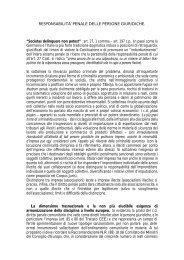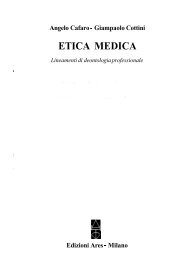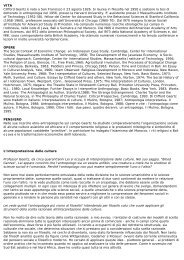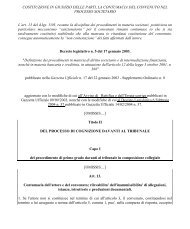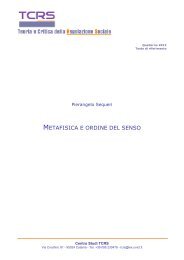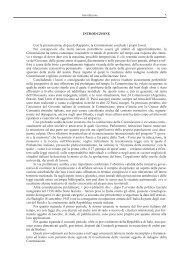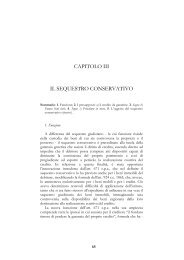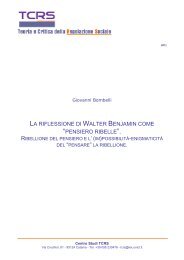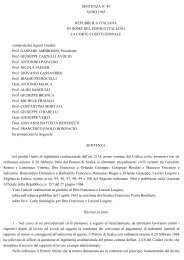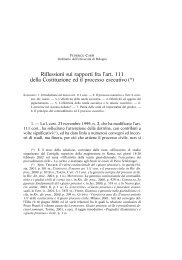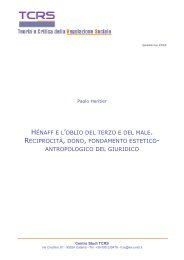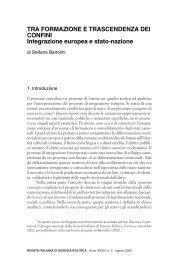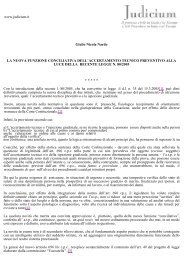FOGLI DI LAVORO per il Diritto internazionale 3 ... - Giurisprudenza
FOGLI DI LAVORO per il Diritto internazionale 3 ... - Giurisprudenza
FOGLI DI LAVORO per il Diritto internazionale 3 ... - Giurisprudenza
Create successful ePaper yourself
Turn your PDF publications into a flip-book with our unique Google optimized e-Paper software.
<strong>FOGLI</strong> <strong>DI</strong> <strong>LAVORO</strong> <strong>per</strong> <strong>il</strong> <strong>Diritto</strong> <strong>internazionale</strong> 3/2008<br />
discretionary power where interferences with the freedom of<br />
religion derived directly from other constitutional rights. The<br />
importance of the right to freedom of religion required a strict<br />
adherence to legal principles and at least some procedural rules<br />
concerning the involvement of the religious communities in the<br />
process of defining the scope of the State powers and safeguards<br />
against abuse of authority. In the applicant associations' view the<br />
authorities had fa<strong>il</strong>ed in their duty to enact an adequate legal<br />
framework in this respect.<br />
73. The applicant associations further maintained that the<br />
interference with their Convention rights was not justified by<br />
any of the legitimate aims set out in Article 9 § 2 of the<br />
Convention. There could never be a justification for judging<br />
religious groups' beliefs as contrasted to their actions. The<br />
Government had fa<strong>il</strong>ed to submit any concrete facts which<br />
would allow the Court to verify the assumption that their<br />
movement was in any way dangerous or that urgent social needs<br />
necessitated the actions in question. Their movement could not<br />
be criticised for any activity which was <strong>il</strong>legal or contrary to<br />
public order and the existing legislation. Accordingly, their<br />
treatment by the political authorities had been <strong>per</strong>secutory and<br />
unjustified, and had not been necessary in a democratic society.<br />
2. The Government's submissions<br />
74. The Government accepted that the applicant associations<br />
could refer to their right of religious freedom under Article 9 § 1<br />
of the Convention. They considered, however, that the<br />
statements under dispute did not interfere with this right, as they<br />
were neither aimed at restricting the applicant associations' right<br />
to exercise their religion undisturbed nor did they directly bring<br />
about such an effect. Any possible indirect factual impact on the<br />
applicant associations' right under Article 9 did not amount to an<br />
interference with that right, given that the Government observed<br />
their obligation to neutrality in religious matters.<br />
75. Even assuming an interference with Article 9 § 1, the<br />
Government considered this to be justified under § 2 of that<br />
same Article, as the contested statements remained within the<br />
margin of appreciation accorded to the Contracting States, that<br />
is, they were in accordance with the law and necessary in a<br />
democratic society. Based on its constitutionally assigned task<br />
197



